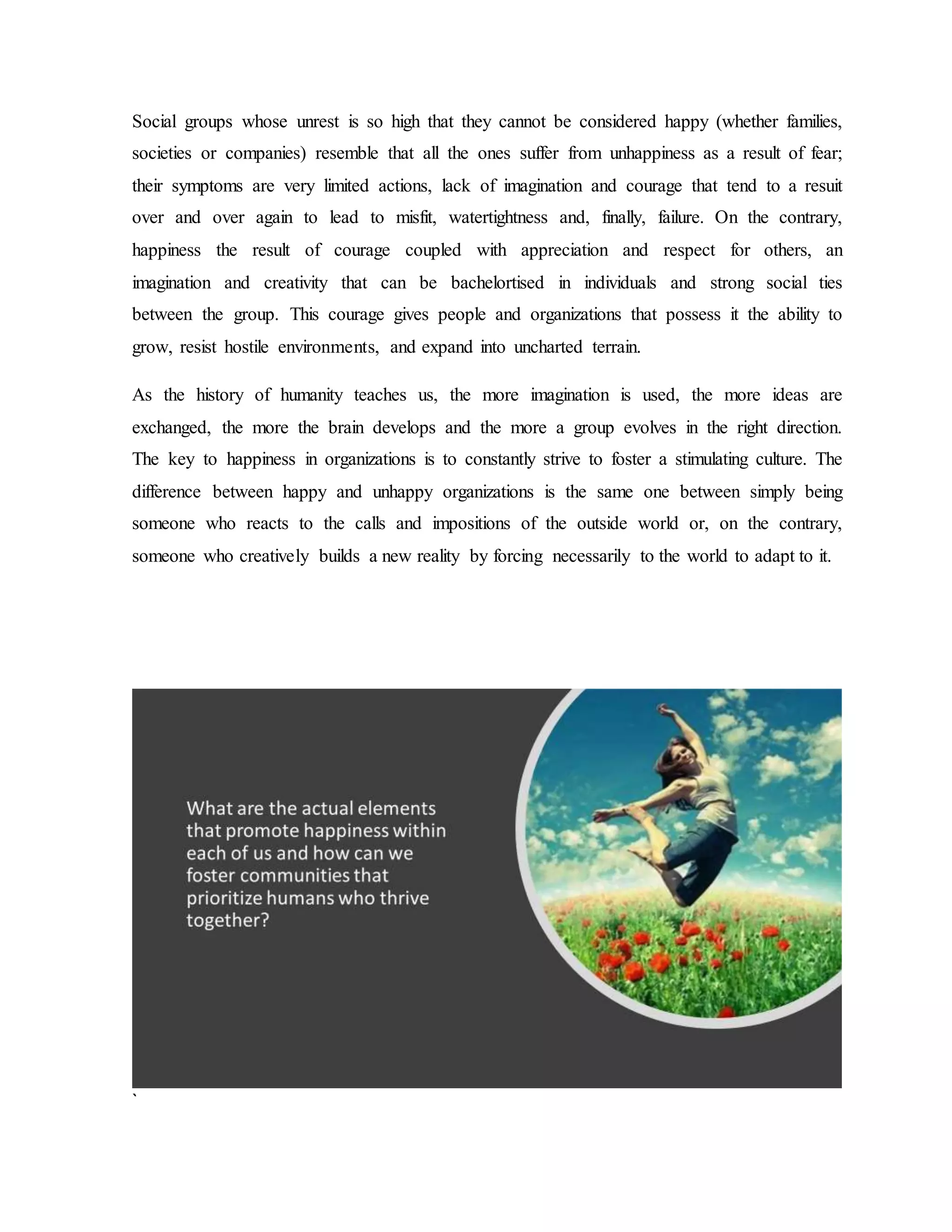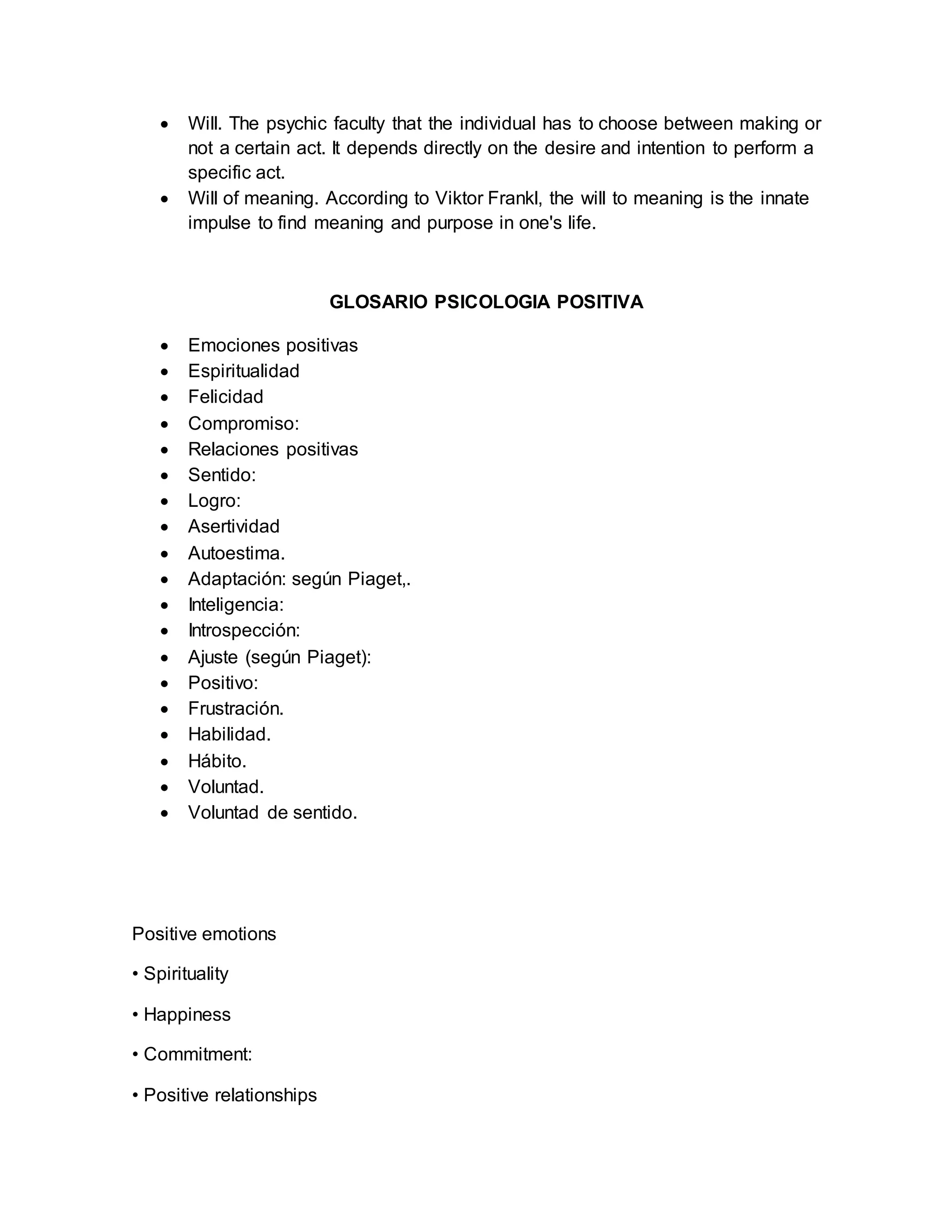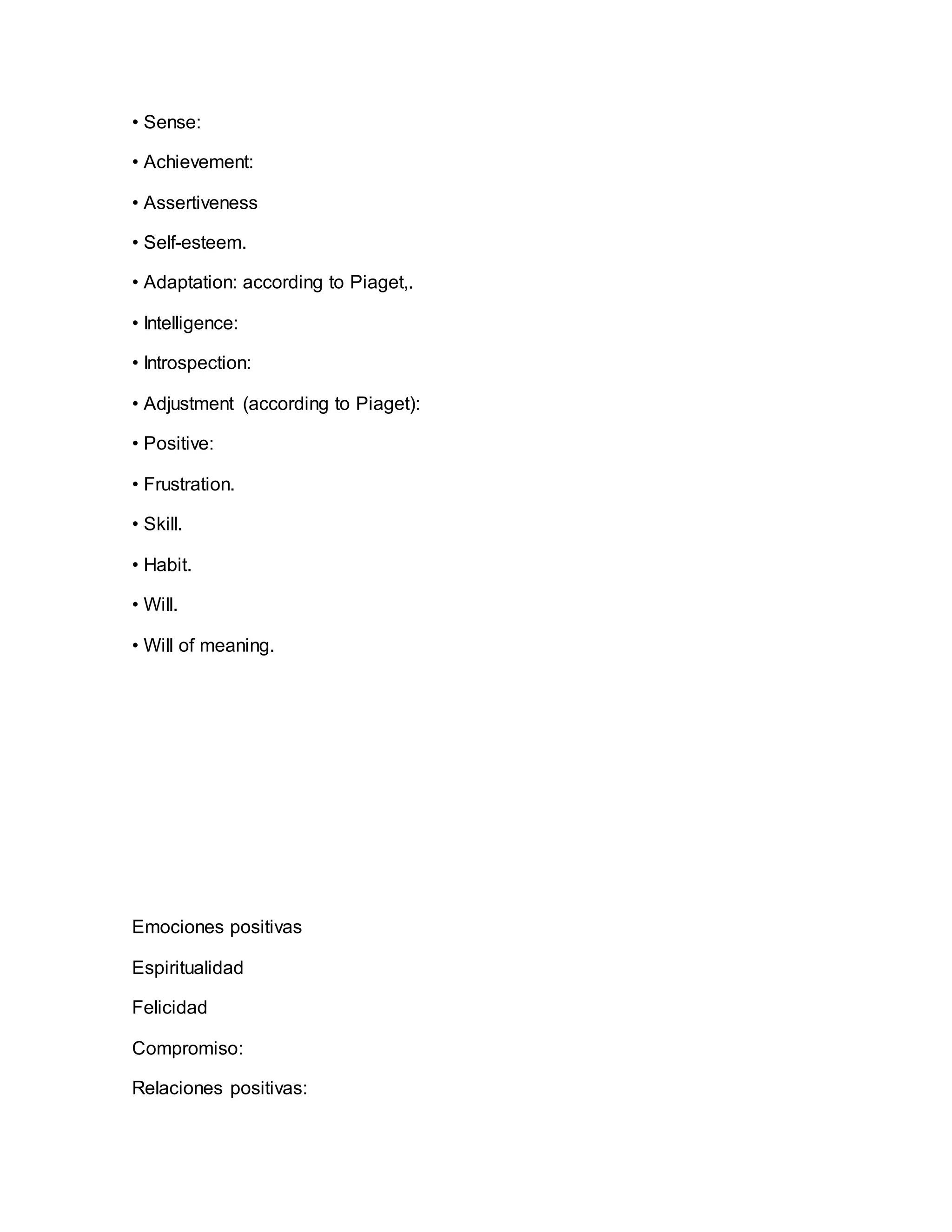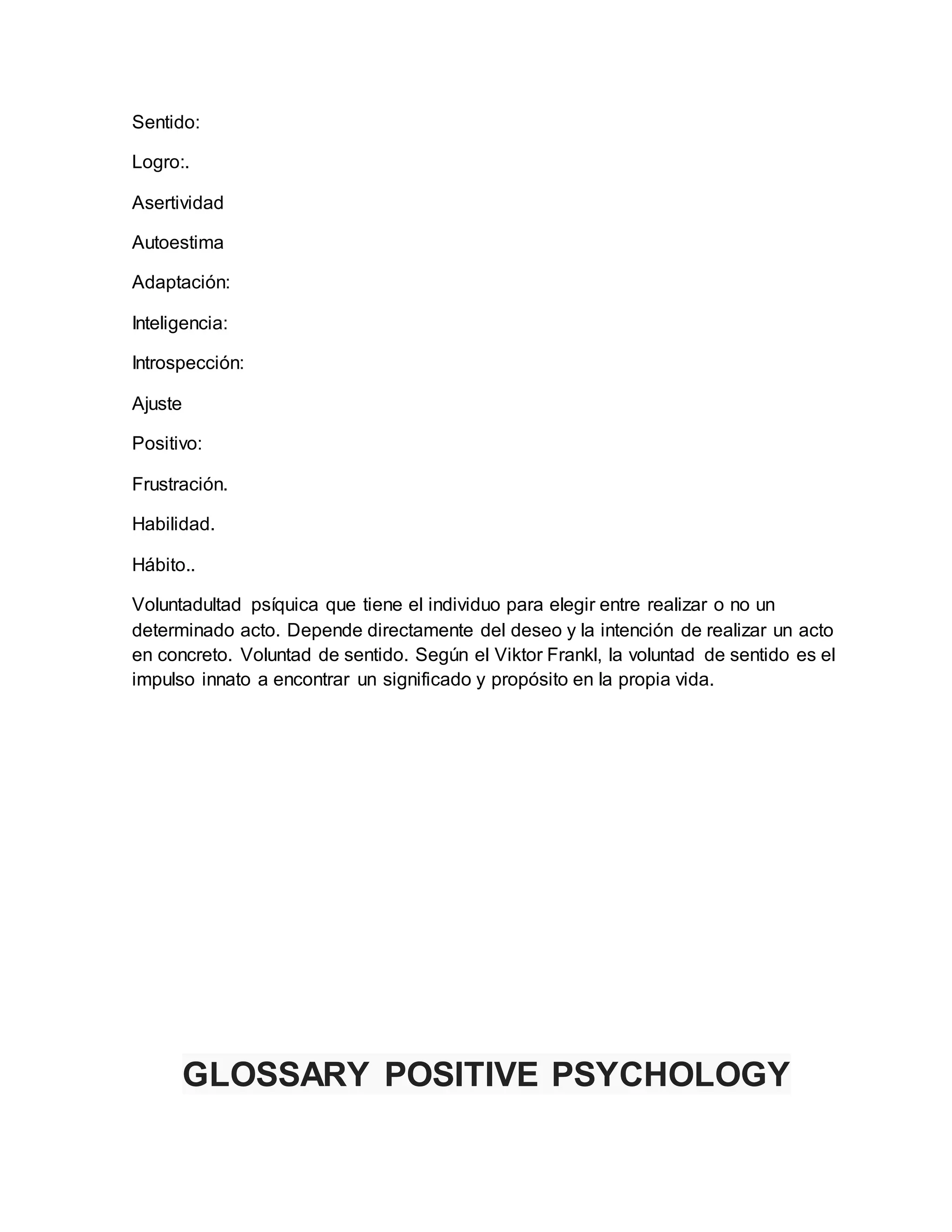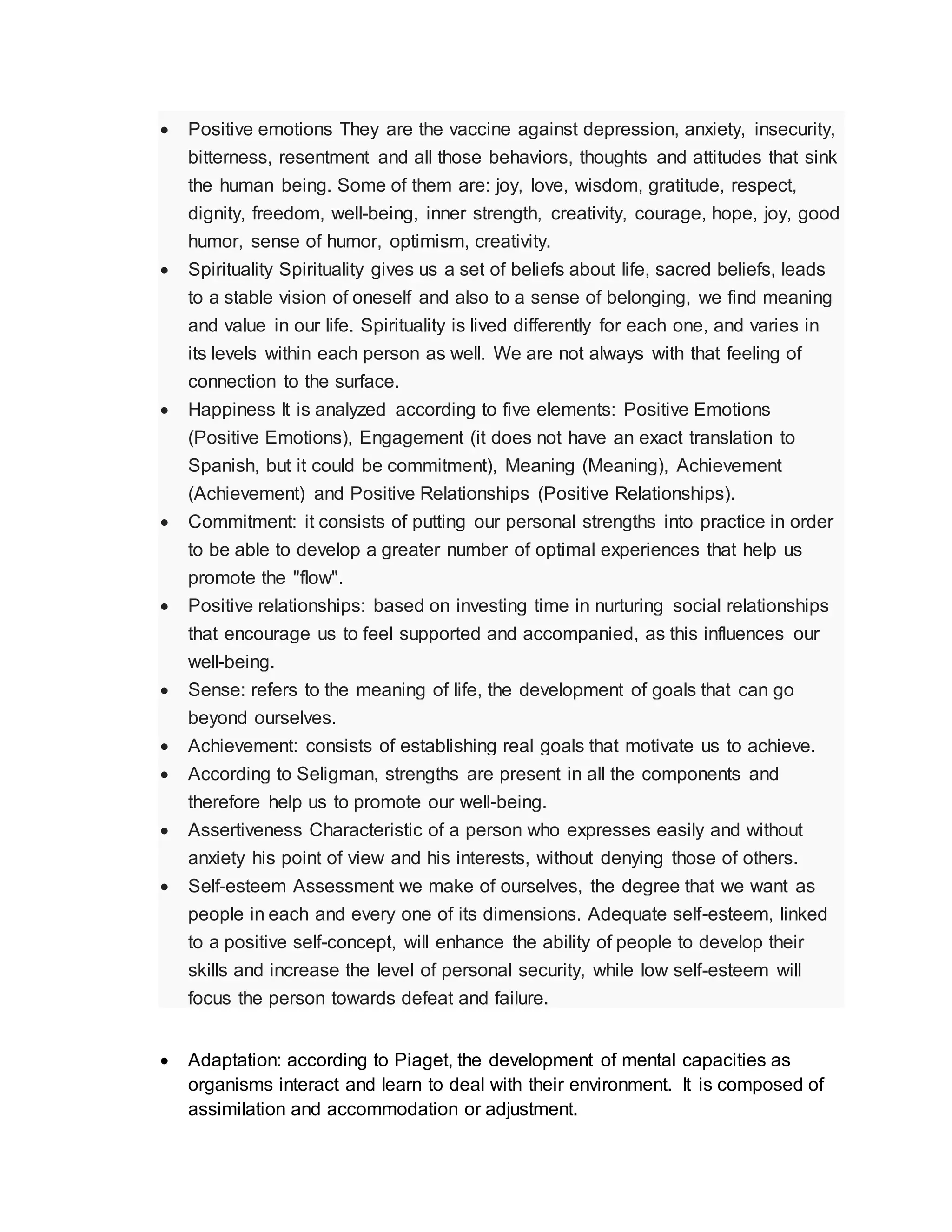The document discusses the PERMA model of well-being developed by Martin Seligman. The PERMA model identifies five factors that are necessary for well-being: positive emotions, engagement, relationships, meaning, and achievement. The model helps people focus on feeling good, living meaningfully, establishing supportive relationships, achieving goals, and being committed to life in order to increase well-being. The awareness of PERMA can benefit both individuals and organizations by fostering a stimulating culture and transitioning to a culture based on courage and creativity rather than fear.



